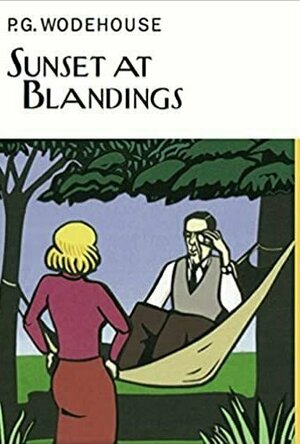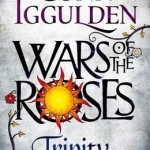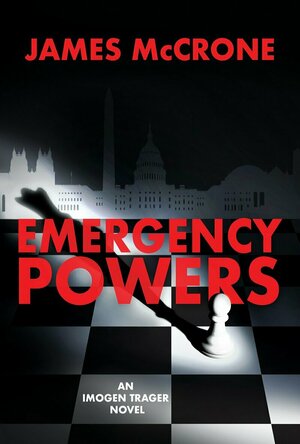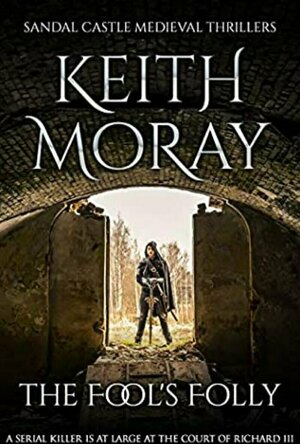
Sunset at Blandings
Book
In Wodehouse’s final novel, unfinished at his death, the author returns to his favourite part of...

Pirate Queen of Ireland: The True Story of Grace O'Malley
Book
This is the true story of Grace O'Malley, or Granuaile, who ruled on land and sea in Connaught over...
The New Old House: Historic & Modern Architecture Combined
Book
Old House, New Life presents 18 private historic homes, from North America to Europe, and traces the...
Deborah (162 KP) rated The Mythology of Richard III in Books
Dec 21, 2018
Early chapters deal with the mythology perpetuated by Tudor propagandists and blinkered 'traditionalists' despite lack of evidence in many cases and even explicit evidence to the contrary in others! He looks at how some stories, such as the 'body in the river' became perpetuated over time so that they eventually become accepted as 'truth' by the uninformed. Even I had taken rather at face value the story of the White/Blue Boar Inn, but as Ashdown-Hill points out, it would be much more logical for Richard III to have stayed at Leicester Castle, as he had on a previous occasion, and also there is no evidence that an inn with a boar in its name existed at all in Leicester at this time!
The latter part of the book deals with more modern myths and I was really rather saddened and disappointed that it was necessary to have to set the record straight on many aspect of the rediscovery of the king's grave. I completely understand Ashdown-Hill's need to do so. After reading his earlier book 'The Last Days of Richard III' I was thoroughly convinced by his well reasoned arguments and never for a moment did I seriously doubt that that is where Richard III's resting place was. I was almost ready to go and dig the car park up myself! Whatever the rights and wrongs of it, I did find all the arguments over a final resting place to be somewhat distasteful, with some people sinking very low in voicing their opinions. It is disheartening that a British University PR department is less interested in truth than in trying to keep all the kudos for itself and I hope that people will read this and know the truth. With all its apparent misinformation I doubt I will be bothering with the visitor centre in Leicester any more than I have bothered to visit the putative site of Bosworth.

Toy Defense Fantasy
Games, Entertainment and Stickers
App
Toy Defense Fantasy 2.0 will please fans of tower defence genre with excellent graphics,...

Wolf of the Nordic Seas (Valiant Vikings #2)
Book
Named after the Norse God of the Sea, Njörd grew up sailing, swimming, and fishing the fjords of...
Viking Historical Romance Fantasy

Wars of the Roses: Trinity
Book
The brilliant retelling of the Wars of the Roses continues with Trinity, the second gripping...
ClareR (5879 KP) rated The Fool’s Folly in Books
Jun 9, 2020
This story is set at Sandal Castle, the seat of John de la Pole, King Richard’s heir (and now it becomes clear why Henry VIII wanted to get rid of the de la Pole family!). De la Pole’s jester is murdered, and the newly appointed judge, Sir Giles Beaton, is asked to get to the bottom of the mystery. What starts out as a seemingly open and shut case, ends up being the start of a killing spree. Giles has to wonder if the deaths are connected, and whether this has something to do with a plot against the King and his heir.
It’s a bit gruesome at points - I liked this, I will admit. Medieval postmortems wouldn’t have been for the more sensitive observer (or reader!), I’m sure. I do have a bit of a thing for historical fiction, and a newly developed respect for crime and mysteries. I appreciate the attention to detail, and the research that must have occurred in writing this book, it feels very authentic.
I haven’t read the first book in this series, but it didn’t affect my reading enjoyment at all. In fact it has made me want to read the first in the series as well!
Many thanks to Sapere Books for sending me a copy of this book to read and review!

Emergency Powers (Imogen Trager #3)
Book
The accidental president is no accident. The investigation that was FBI Agent Imogen Trager’s...
Suspense Thriller Imogen Trager
Deborah (162 KP) rated Richard III: The King in the Car Park in Books
Dec 21, 2018
I will admit that with pro-Ricardian sympathies I was probably never going to like this book, but it is a bit of a mess and feels like another case of jumping on the bandwagon. There is no index, no footnotes/endnotes and only a partial list of sources, which is enough to raise questions about academic rigour. If you are going to publish opinions, particular in The Great Debate, these really should be backed up by factual evidence. I think I am most irked by the hypocrisy of Mr Breverton telling us at one point that he is going to take a fresh impartial look at the subject and then immediately showing us exactly which colour he prefers his roses.
His list, near the back of the volume, of all the 'crimes' he thinks Richard III was guilty of really does teeter on the brink of blindness and absurdity. Apparently he is guilty in the case of the Earl of Warwick, son of Richard's older brother, George of Clarence, but whose claim to the throne was barred by his father's attainder (always reversible, but Warwick was then only a child of about 8 years). I'm pretty sure this Warwick was sent to Sheriff Hutton Castle to be brought up with other young persons, as befitted his status by Richard. Of course, as soon as Henry Tudor usurped the throne, this boy was locked up in the Tower only to be executed later on a trumped up charge. I think I know who the guilty party is in that case.
That is my frank opinion on this volume; I will now expect said author to savage me as he has everyone else on Amazon who has pointed out the self-evident shortcomings in this work.

